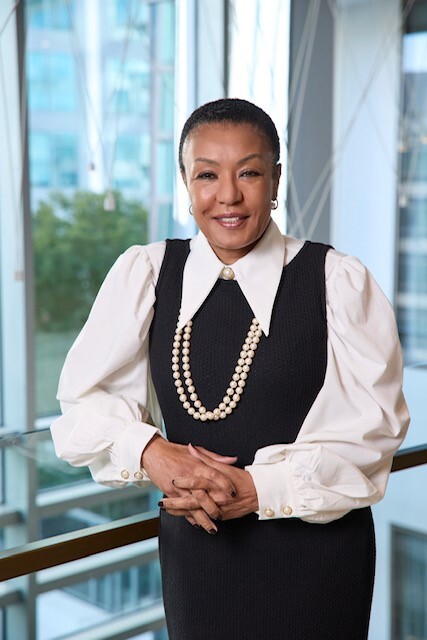
Justice Leah Ward Sears began serving as Emory’s interim president on September 1, 2025, bringing to the role a deep love for the university and a connection that spans nearly half a century. A proud alumna of Emory’s School of Law, she first arrived on campus in 1977 as a law student. Since then, her relationship with Emory has been one of continual service and devotion, first as a student, later as an adjunct professor at the law school, and, for the past 15 years, as a member of the Emory Board of Trustees.
Her professional life has been nothing short of trailblazing. In 1982, she was appointed to the City Court of Atlanta by Mayor Andrew Young. Just three years later, she made history as the first African American woman to serve as a superior court judge in Georgia. Her distinguished service continued with her 1992 appointment to the Supreme Court of Georgia by Governor Zell Miller, the first woman to hold that position. Over the course of 17 years on the state’s highest court, including four as chief justice, Justice Sears earned a reputation for her steady leadership, her integrity, and her unwavering commitment to justice.
Her accomplishments have been recognized far and wide. She has been awarded honorary degrees from institutions across Georgia and beyond, including Spelman College, Morehouse College, Clark Atlanta University, Piedmont College, LaGrange College, Savannah State University, and John Marshall Law School. She is also a recipient of some of the legal profession’s most prestigious honors: the American Bar Association’s Margaret Brent Award, the Daily Report’s Lifetime Achievement Award, and the Emory Medal, the university’s highest alumni honor. In 2020, USA Today named her one of ten “Georgia Women of the Century,” and earlier, she was recognized among the “Fastcase 50” for her visionary contributions to the law.
Justice Sears’ life and career have been defined by firsts, by courage, and by an enduring devotion to both the law and the community she serves. Now, as she leads Emory through this transitional chapter, she brings that same devotion home to the institution that helped shape her extraordinary journey.